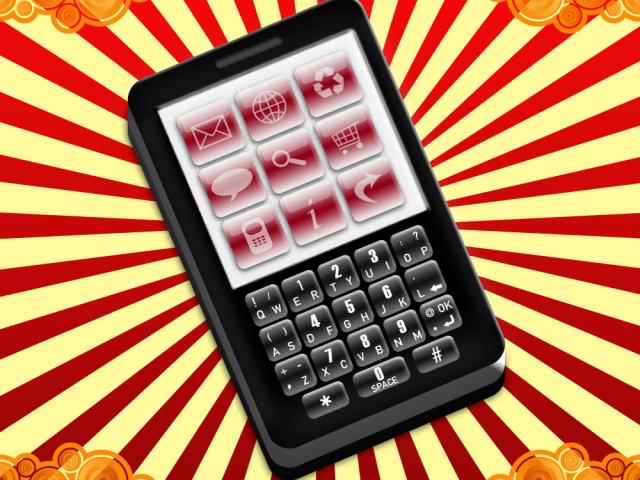The iPad is actually a very old fashioned device, but it’s been dressed up to look new – typical Apple, you might say. The reality is that the smartphone is a much more radical device. Recently the iPad has obtained high visibility within learning. It’s almost as if the iPad has become the tool of choice for anything beyond face to face or elearning, but it shouldn’t be thought of in that way.
The similarity in terms of the form factor of the two has been diversionary. In a nutshell there is a much bigger difference than just size and capacity that differentiates the two. The psychology and the pedagogy of usage are very different.
The tablet: A portable device for formal learning
 "The similarity in terms of the form factor of the two has been diversionary. The psychology and the pedagogy of usage are very different."
"The similarity in terms of the form factor of the two has been diversionary. The psychology and the pedagogy of usage are very different."We promote the iPhone, Blackberry and other devices as social learning tools – an informal way to learn. HR departments have been seeking to leverage this potential. To them it’s not really about mobile learning, but how they can encourage and enable best practice in informal learning. I’m very excited by this component and much less so by the tablet.
The smartphone: A mobile device for informal learning
If you really want to invigorate your learning then energise your phone, not the tablet.
- The tablet is portable, the phone is mobile. The tablet is not a mobile device in that regard. It’s slightly more portable than a netbook and faster to boot up and connect, but these are incremental benefits not a step change.
- The smartphone is still a step change product ready to be exploited properly. We are only at stage one of a journey of maybe 10 steps of getting to the phone.
- So we understand there is a bit of conceit going on – learning departments want to jump into the web 2.0 learning space (learning 2.0) and they have grabbed the iPad as the driver of that.
Do you follow us on twitter? We are moving the @LeadershipZone account to @tzleadership. Please follow @tzleadership for all future tweets.
The iPad is actually a very old fashioned device, but it's been dressed up to look new – typical Apple, you might say. The reality is that the smartphone is a much more radical device. Recently the iPad has obtained high visibility within learning. It's almost as if the iPad has become the tool of choice for anything beyond face to face or elearning, but it shouldn't be thought of in that way.
The similarity in terms of the form factor of the two has been diversionary. In a nutshell there is a much bigger difference than just size and capacity that differentiates the two. The psychology and the pedagogy of usage are very different.
The tablet: A portable device for formal learning
 "The similarity in terms of the form factor of the two has been diversionary. The psychology and the pedagogy of usage are very different."
"The similarity in terms of the form factor of the two has been diversionary. The psychology and the pedagogy of usage are very different."We promote the iPhone, Blackberry and other devices as social learning tools – an informal way to learn. HR departments have been seeking to leverage this potential. To them it's not really about mobile learning, but how they can encourage and enable best practice in informal learning. I'm very excited by this component and much less so by the tablet.
The smartphone: A mobile device for informal learning
If you really want to invigorate your learning then energise your phone, not the tablet.
- The tablet is portable, the phone is mobile. The tablet is not a mobile device in that regard. It's slightly more portable than a netbook and faster to boot up and connect, but these are incremental benefits not a step change.
- The smartphone is still a step change product ready to be exploited properly. We are only at stage one of a journey of maybe 10 steps of getting to the phone.
- So we understand there is a bit of conceit going on - learning departments want to jump into the web 2.0 learning space (learning 2.0) and they have grabbed the iPad as the driver of that.
Let's not juxtapose the tablet with the smartphone. It's simply not the case. And let's not just focus on size and capacity - it is much more about the psychology and the interaction.




